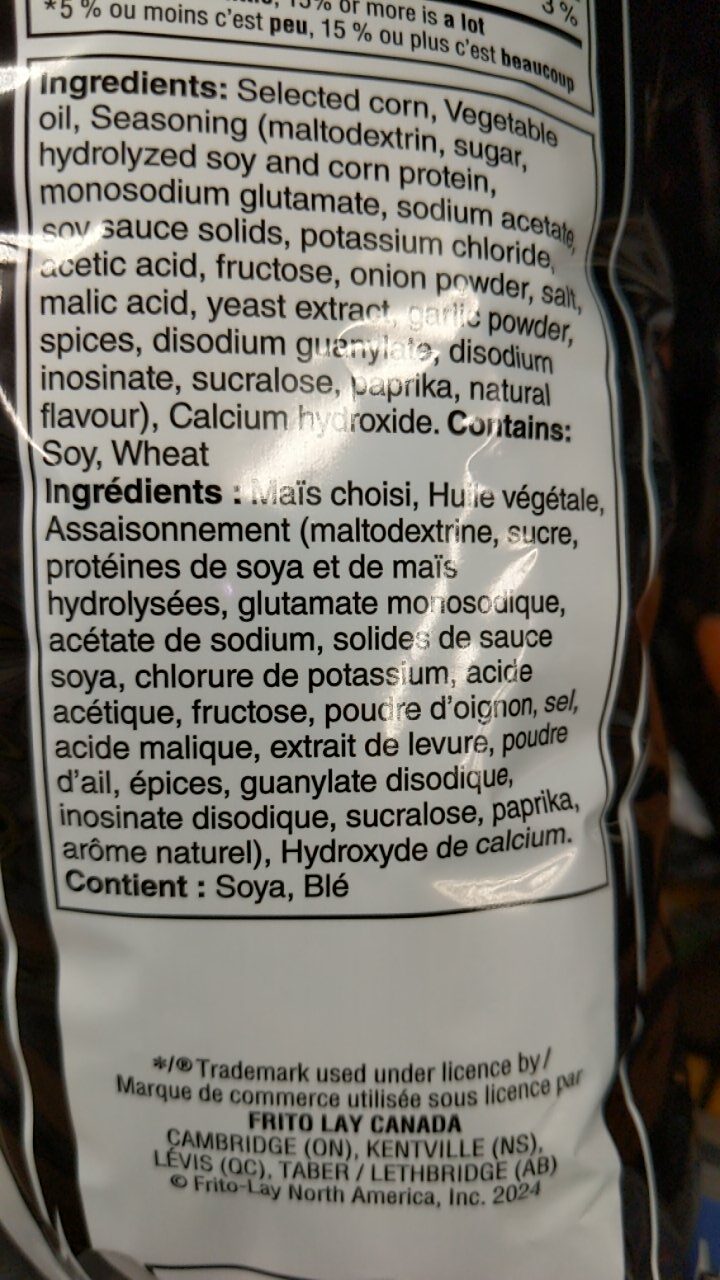
Barcode: 060410076248
HALAL
📝 Reason: Quranic standards are satisfied in this product. Surah Al-Baqarah (2:172) commands believers to eat pure provisions. Our analysis detected no pork derivatives (6:145), no blood (2:173), and no intoxicants—aligning with Hanafi, Maliki, Shafi’i, and Hanbali rulings.
🏷️ Category: Snacks
📄 Certificates: */* Trademark Used Under License By/, Marke De Commerce Utilisée Sous Licence Par, Cambridge (On), Kentville (Ns),, Lévis (Qc), Taber/ Lethbridge (Ab), Frito Lay North America, Inc. 2024, Contains:, Soy, Wheat
Ingredients:
Details
Understanding Halal Status of This Snack Product
When it comes to making dietary choices, many believers seek assurance that their foods meet Islamic standards. This particular snack product has been certified as Halal, ensuring compliance with Quranic regulations and teachings. The consumption of halal products is a critical aspect of Islamic life, focusing on cleanliness and purity in what we ingest.
What Makes a Product Halal?
The definition of halal is quite detailed, and it is derived from Islamic jurisprudence. Surah Al-Baqarah (2:172) emphasizes the importance of consuming pure provisions. Our evaluation of this product found no elements contravening these teachings—specifically, no pork derivatives, blood, or intoxicants are involved, satisfying the guidelines of Hanafi, Maliki, Shafi’i, and Hanbali schools of thought.
Ingredient Analysis
Let’s delve into the ingredients of this snack product:
- Selected Corn – This ingredient is permissible unless processed with Haram additives.
- Vegetable Oil – A common cooking oil that is permissible in Islam.
- Maltodextrin – Often derived from starch, this is permissible as well.
- Sugar – A staple sweetener, confirmed as halal.
- Hydrolyzed Soy and Corn Protein – Typically halal unless tainted with Haram additives.
- Monosodium Glutamate – Commonly used for flavor enhancement, this ingredient is permissible in the Islamic diet.
- Sodium Acetate – A legal food ingredient in halal diets.
- Soy Sauce Solids – Caution advised; needs verification for Halal authenticity.
- Potassium Chloride (E508) – Used as a salt substitute, considered permissible.
- Acetic Acid (E260) – A food preservative, classified as halal.
- Fructose – Naturally occurring sugar, approved in halal diet.
- Onion Powder – A favored seasoning, well within halal dietary limits.
- Salt – Universally accepted in diets.
- Malic Acid (E296) – Acts as souring agent, halal compliant.
- Yeast Extract – Often used for flavor; safe to consume for halal.
- Garlic Powder – Suitable for consumption, though its odor is discouraged before prayers.
- Spices – Generally permissible in halal diets.
- Disodium Guanylate – Admissible in halal food products.
- Disodium Inosinate – Also categorized as halal.
- Sucralose – A low-calorie sweetener permissible in Islamic dietary laws.
- Paprika – A spice with many benefits; considered halal.
- Natural Flavour – Contextual; must be confirmed halal.
- Calcium Hydroxide (E526) – Recognized as halal.
- Chosen Corn – Same as selected corn; permissible.
- Wheat – Common grain, halal-approved.
- Soy – Widely consumed, permissible in dietary considerations.
Conclusion
In summary, this snack product stands out as a Halal option for those seeking snacks within their dietary restrictions. Each ingredient has been scrutinized against Halal standards, confirming the absence of any impermissible elements. With strong endorsements from Islamic law, this product meets all necessary criteria to be deemed suitable for Muslim consumers.
The select manufacturers also uphold credibility through responsible sourcing and processing, reinforcing their commitment to transparency as they provide halal-certified snacks.
